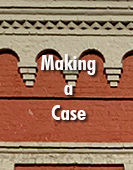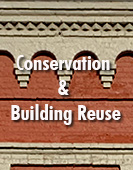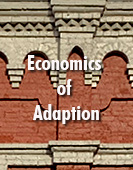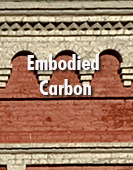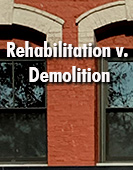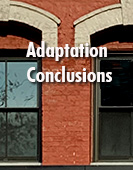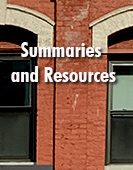- Heritage 101
- Advocacy
- Accessibility for Historic Places
- Climate & Sustainability
- Cultural Maps
- Heritage Place Conservation
- Heritage Policy & Legislation
- Homeowners
- Intangible Cultural Heritage
- Reconciliation
- Indigenous Cultural Heritage
- Setting the Bar: A Reconciliation Guide for Heritage
- 1. Heritage and Reconciliation Pledge
- 2. Acknowledging Land and People
- 3. Celebrating Days of Recognition and Commemoration
- 4. With a Commitment to Learn
- 5. Committing to Strategic Organizational Diversity
- 6. Mission-Making Room for Reconciliation
- 7. Possession, Interpretation, Repatriation and Cultural Care
- 8. Shared Decision Making
- 9. Statements of Significance and other heritage planning documents
- 10. Heritage Conservation Tools, Local Government Act
- Racism: Do Not Let the Forgetting Prevail
- Taking Action: resources for diversity and inclusion
Climate Adaptation: Making a Case
Making a case to leverage existing and historic buildings for zero net carbon
1. An Introduction
BC is a leader in North America in new building energy efficiency; however, globally almost 40% of GHG emissions relate to buildings and the vast majority are existing buildings, including historic buildings.
In larger cities, such as Victoria or Vancouver, the share of emissions attributable to buildings increases, up to 70% and beyond. In fact, 67% of today’s buildings will still be with us in 2030.1
Existing buildings are a vast resource that we are missing opportunities to leverage, through proper stewardship. Not just to reduce major amounts of carbon emissions and increase overall sustainability and resilience, but also to improve community place-making and continuity, increase the achievement of social and cultural objectives such as inclusivity and commemoration, and reduce urban intensification impacts and costs. In a ground-breaking program at the University of British Columbia, “UBC Renews”, results showed that for the cost of two new buildings constructed on campus, they could rehabilitate 3 buildings of equivalent floor space.
It is difficult to argue against “buy two – get one free” thinking!3
Globally, North Americans built as much in the post-war years (1945 to 1975) as they had in all the previous recorded history of buildings. These 45- to 75-year-old buildings are now coming to the end of their lifecycle phase and many need major rehabilitation anyway. Incorporating deep green retrofit to reduce energy and GHG emissions, actions that pay back over time is a fiscal “no-brainer”. The revitalization of buildings of this period alone provides opportunity to significantly reduce carbon in our environment.
Heritage buildings are a subset of all existing buildings. Both traditional buildings and exemplars from the Modern era (“Modern Heritage”) showcase opportunities to demonstrate the powerful impact of deep green rehabilitation. This is because they are boosted by the fact that preserving the structure and many other elements, reduces emissions from their “embodied carbon”, which represents over a quarter of a building’s total carbon. The other portion is “operational” carbon, which, as we increase energy efficiency through new technologies, will make that embodied carbon a larger and more important aspect of building carbon over time.
Heritage conservation professionals have harnessed the skills to design contemporary interventions into existing buildings that still preserve their value – heritage value, as well as economic value, socio-cultural value and environmental value, all of which most existing and historic buildings possess, to at least some degree.
The resource guide was prepared by Mark Thompson Brandt Architecture and Mark Thompson Brandt, Emily Guy, Catherine McGain, and Melissa Lengies. See About Authors for more information.
[1] British Columbia Government. “Heritage and Sustainability Facts.” Heritage & Sustainability Facts – Province of British Columbia (gov.bc.ca)
[2] Roadmap to 2030 – Buildings Pathway Stakeholder Engagement. CleanBC, August 4, 2021.
[3] Hallé, Renée. “Renewal of University of British Columbia’s Chemistry Building Centre Block through Retrofits for Energy Efficiency.” UBC Renew, December 22, 2019.

